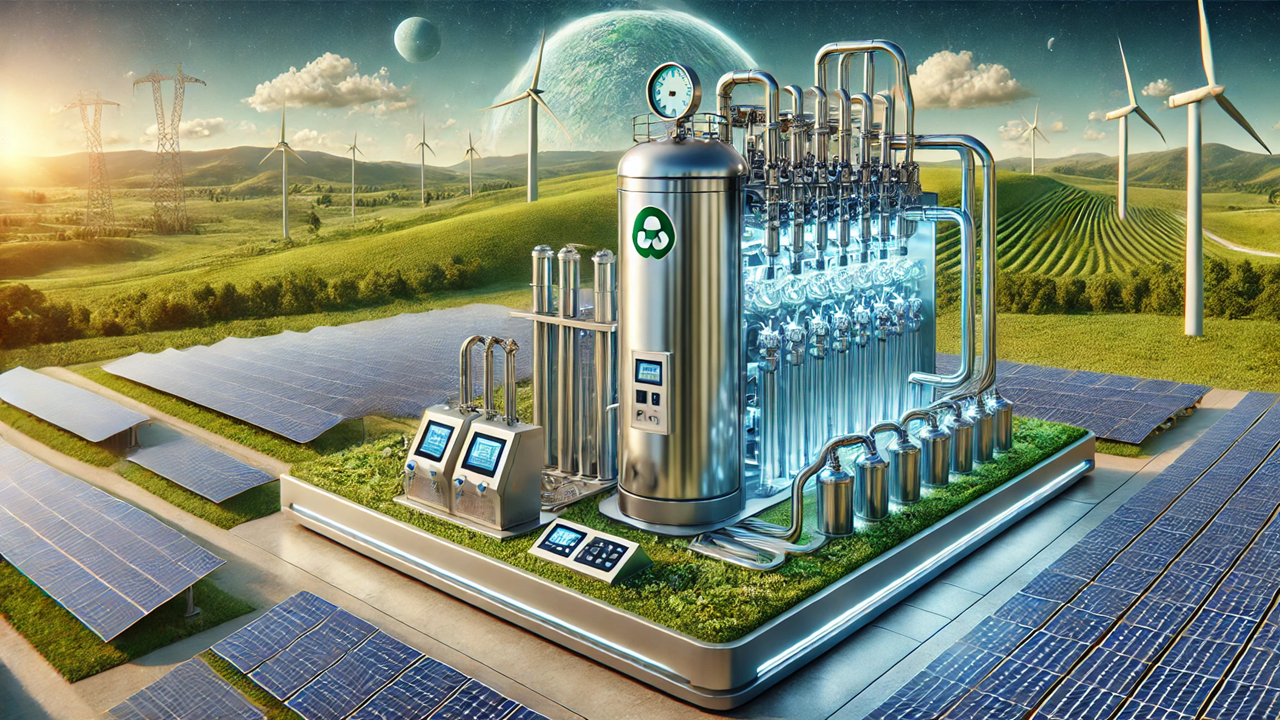South Africa’s Green Hydrogen Revolution: Pioneering Electrolyser Technology for a Sustainable Future
South Africa’s green hydrogen revolution takes center stage in a groundbreaking report exploring electrolyser technology’s role in transforming the energy landscape. The assessment highlights the nation’s renewable energy potential, pilot projects, and pathways for scaling green hydrogen production while addressing economic, environmental, and infrastructural challenges.

South Africa’s ambitious drive toward a greener economy is spotlighted in the recently released report, Electrolysers for Green Hydrogen Production: Pilot Technology Assessment in South Africa. The report delves into the nation’s exploration of green hydrogen production through cutting-edge electrolyser technology. Published by UNCTAD, it presents a comprehensive analysis of technological feasibility, pilot initiatives, and future potential.
Transforming Energy: The Role of Electrolysers in Green Hydrogen Production
As the world transitions to sustainable energy solutions, green hydrogen emerges as a game-changer in decarbonizing industries. Electrolysers, the backbone of green hydrogen production, utilize renewable electricity to split water into hydrogen and oxygen. The report examines how South Africa’s abundant solar and wind resources make it uniquely positioned to harness this technology, enabling a cleaner, energy-efficient future.
The assessment outlines three main types of electrolysers:
Alkaline Electrolysers: Cost-effective and technologically mature, offering a proven solution.
Proton Exchange Membrane (PEM) Electrolysers: Compact and efficient but with higher costs.
Solid Oxide Electrolysers (SOE): Emerging as the most efficient, though not yet commercially widespread.
Each technology presents unique advantages, operational requirements, and challenges, emphasizing the importance of matching solutions to local contexts.
Showcasing Innovation: Pilot Projects Across South Africa
Pilot projects across South Africa showcase the country’s commitment to green hydrogen. Collaborative efforts between industries, government agencies, and international partners are testing the scalability and viability of electrolyser technologies. These projects leverage South Africa’s renewable energy assets but face hurdles such as infrastructure gaps, water availability in arid regions, and high initial capital investments.
Notable case studies highlight the integration of solar and wind energy to power electrolysers, paving the way for large-scale adoption. However, the report stresses the need for strategic investments to address bottlenecks and ensure long-term success.
Economic and Policy Drivers for Green Hydrogen
The economic potential of green hydrogen hinges on reducing electrolyser costs, expanding renewable energy access, and achieving economies of scale. The report underscores the critical role of government support through subsidies, tax incentives, and clear regulatory frameworks.
Global demand for green hydrogen positions South Africa as a potential export leader. By capitalizing on international markets, the country could bolster its economy while contributing to global decarbonization efforts.
Addressing Environmental and Social Dimensions
The report highlights the dual benefits of green hydrogen: significant reductions in greenhouse gas emissions and job creation in renewable energy sectors. However, it also acknowledges environmental concerns, particularly water consumption in drought-prone areas. Addressing these challenges is vital for ensuring a sustainable and equitable transition.
Challenges and Pathways Forward
Despite the promising outlook, several challenges remain:
High costs of electrolyser technology and operational processes.
Limited infrastructure for hydrogen storage, transport, and distribution.
Policy uncertainties that could hinder investment and scalability.
The report recommends scaling pilot projects, fostering public-private partnerships, and investing in research and development to overcome these barriers. Establishing a robust roadmap for green hydrogen integration is critical to South Africa’s success.
A Vision for a Sustainable Future
The Electrolysers for Green Hydrogen Production report underscores South Africa’s potential to lead in green hydrogen innovation. By addressing technological, infrastructural, and policy challenges, the country can unlock a cleaner, more sustainable future while positioning itself as a global green energy hub.
As South Africa embarks on this transformative journey, the collaboration between stakeholders will play a pivotal role in shaping the trajectory of its green hydrogen economy.
- FIRST PUBLISHED IN:
- Devdiscourse










